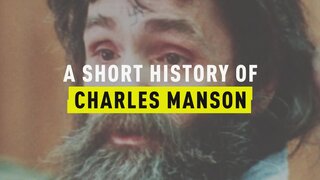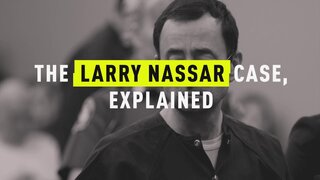Who Is Thiru Vignarajah, The Attorney Who's Fought Against A Retrial For Adnan Syed?
Vignarajah has been handling the Syed case for the state of Maryland for years. Who is he, and what has he said about Syed’s efforts for an appeal?
Update: On Sept. 19, 2022, a Baltimore judge ordered the release of Adnan Syed after overturning his conviction for the 1999 murder of his ex-girlfriend Hae Min Lee. The move happened after Baltimore State’s Attorney Marilyn Mosby filed a motion to vacate Syed’s conviction, citing evidence that casts doubt on the original case. Read more about that evidence here.
It’s a case that captivated millions — first, with the premiere of the “Serial” podcast in 2014 and, again, in the podcasts, books, and documentaries that have followed.
Adnan Syed was convicted in 1999 of the murder of 18-year-old Hae Min Lee, his former high school sweetheart who was found dead and buried in a shallow grave on the side of a Baltimore road. When “Serial” outlined the case and all its complexities — from conflicting witness statements to numerous persons of interests — the 12-episode premiere season ended up attracting widespread attention in the case that persists today.
Such popularity has also placed a spotlight on the people closest to the case, including the friends and family of Hae Min Lee, like her then-boyfriend Don Clinedinst, to those who have been fighting on both sides, like Rabia Chaudry, an attorney and friend of Syed’s family who’s been one of his most vocal supporters, as well as Thiru Vignarajah, the state of Maryland’s lead prosecutor who’s been handling the case since 2016.
Who is Thiru Vignarajah?
As the lead prosecutor handling Syed’s appeal on behalf of the state, Vignarajah has been one of the key players in the battle of Adnan Syed v. Maryland.
On his website, he references a wealth of experience trying “complex” criminal cases on both the state and federal level, having worked as a federal prosecutor, the chief of major investigations in the State’s Attorney’s Office for the city of Baltimore, and as a deputy attorney general for the state of Maryland.
Vignarajah continued handling the Syed case even after he vacated his position as deputy attorney general in January 2017 and became a partner at DLA Piper, a private law firm in Baltimore; he has since been listed in court filings as “Special Assistant Attorney General,” according to Rolling Stone.
Vignarajah, a Baltimore native whose parents were public school teachers, is also an adjunct faculty member at University of Maryland’s law school, and has taught at Johns Hopkins University and the University of Baltimore School of Law. He is a graduate of Yale University and Harvard Law School, where he was president of the Harvard Law Review.
What are his politics?
Syed’s case has become a popular point of debate locally, and when Vignarajah ran for Baltimore state’s attorney last year (the same year that his sister unsuccessfully ran for governor), his position on the case, as well as that of his fellow Democratic opponents, became an especially hot topic.
Vignarajah, who said during his campaign that he’s “never lost a murder case,” has made clear his support of the state’s handling of the case, but one of his opponents, Ivan Bates, took a firm stance on the opposite side of the fight, and said that he would drop Syed’s case if elected.
“The two pieces of evidence that the case relied on have been shown to not be reliable in any way, shape or form,” he told Rolling Stone, likely referring to the cell phone records that initially seemed to place Syed at the alleged scene of the crime and the testimony of Jay Wilds, an acquaintance of Syed’s who claimed that Syed called on him to help dispose of Lee’s body.
Both points of evidence have been widely contested, with new, conflicting details popping up in the years since Syed’s conviction. Wilds has detailed contradictory versions of events that do not always line up with the state’s story on Lee’s murder, while the credibility of the cell phone tower evidence has also been called into question, with the expert who initially testified on behalf of the state walking back his initial position years later.
Both Vignarajah and Bates lost out to Marilyn Mosby, who successfully secured her second term with nearly 50 percent of the vote, according to WYPR, a Baltimore-based NPR station. Bates followed behind with 28 percent, while Vignarajah had the least amount of support with 22 percent.
What has he said about the case?
As deputy Maryland attorney general, Vignarajah said in 2016, before Syed’s conviction was vacated later that year, that Syed was convicted due to “overwhelming evidence,” adding, “he did it, and the state proved it,” according to the Baltimore Sun.
After Syed was denied a new trial last month, Vignarajah reiterated the state’s contention that Syed’s conviction was “just and supported by overwhelming evidence,” according to WJZ, a CBS station in Baltimore.
“We are pleased with the Court of Appeals’ decision upholding Mr. Syed’s conviction,” he said. “This has been an arduous process for Hae Min Lee’s family, and we are hopeful the decision finally brings them a measure of comfort and closure.”
Despite this latest blow, Syed’s team of supporters have not given up on the fight for his freedom. His attorney Justin Brown issued a statement following the news that Syed’s conviction had been reinstated, admitting that they were “devastated” by the court’s decision but reaffirming that they “will not give up on Adnan Syed.”
The finale episode of HBO’s “The Case Against Adnan Syed” revealed that the state offered Syed a plea deal last year that would have entailed Syed pleading guilty and serving four more years in prison. Syed, who said during the doc that agreeing to such an arrangement would be like “exchanging one prison for another,” did not take the deal.
























